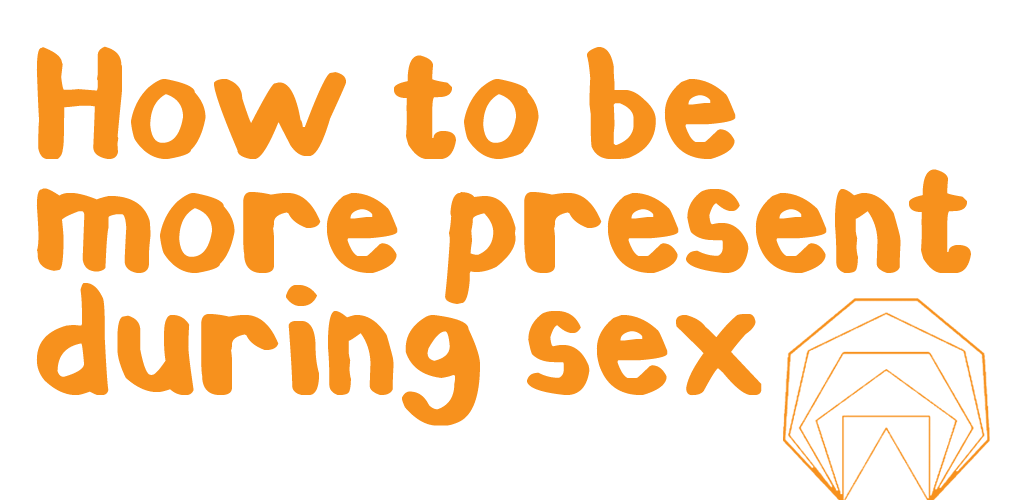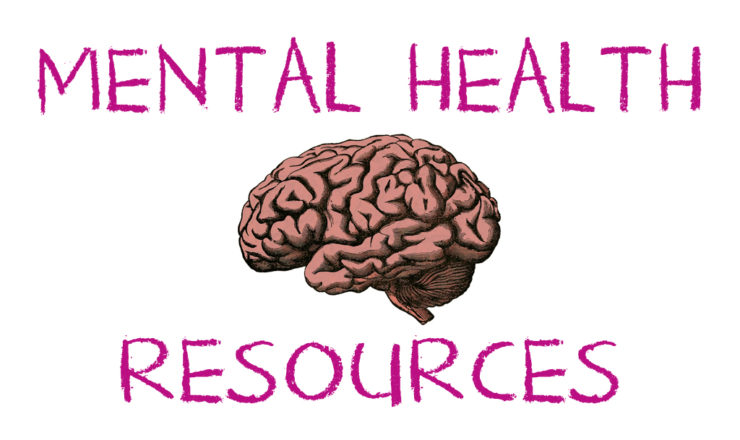
How To Be More Present During Sex
By Teen Health Source
Do you ever find it hard to focus on sex? Whether with a partner or by yourself, do you find your mind drifting off or just feel like it’s impossible to pay attention to whatever pleasurable activity you’re trying to do? It’s very common!
This post covers some possible explanations, as well as some possible solutions, for how to address feeling distracted when it comes up during sex. Overall, though, we want to emphasize that it’s okay to find it hard to stay present during sex. It doesn’t mean you’re bad at sex, or something’s wrong with you. Not all activities capture everyone’s attention the same way, and it might take some practice if you want to feel more present.
Why can’t I focus?
There’s no single reason why people have a hard time focusing during sex, but here are some possibilities:
- Overthinking it: Maybe it’s your first time and you’ve got lots of ideas of how it should go. Or maybe you’re really cautious about safer sex, and you’re worrying about the risks of getting pregnant or STIs with everything you do. Thinking too much about what could happen during sex can make it hard to pay attention to what actually is happening.
- Underthinking it: Sometimes it can be hard to focus on sex because you’re thinking about a million other things instead. It can be hard to slow your brain down when you’re still playing through chores you need to do, or something a friend said, or the last movie you watched. We live in a society that prioritizes multi-tasking, and it can be hard to turn that part of our brain off and actually pay attention to what you’re doing in the moment.
- Outside Distractions: Are you getting a lot of notifications on your phone? Are you edgy because you think someone might come into the room you’re in? Is the dog barking, or is there a cat who won’t get off your bed? There are lots of outside factors that can make it hard to pay attention to what’s going on between you and your partner(s).
- Being Bored: Maybe it’s because you’re doing something that your partner is into but does nothing for you. Maybe you/your partner(s) are doing routine moves, and they’re not as exciting anymore. Maybe you’ve just been having sex for a long time and you want to do something else now. Maybe your just really tired. Boredom happens and that’s okay!
- Focusing On Others: It’s good to pay attention to your partner’s pleasure, but focusing on them and not you can definitely lead to boredom and distraction. It can also contribute to not feeling aroused at the same time as your partner(s), which can be a turn-off for everyone involved. It can be tough to find a balance!
- Lost in a Fantasy: Some people fantasize about scenarios, activities, or other people to get turned on. This is totally normal and fine as long as you can still focus on what’s happening in real life. Because it’s also totally normal to get so wrapped up thinking about these fantasies that you forget to attend to the real-life partner(s) and activities that are right in front of you.
- Performance Anxiety: Related to overthinking things, performance anxiety is the feeling that parts of the sex you’re having are not living up to expectations (either yours or your partner’s). Some people feel that sex needs to be like what they see in porn (or society in general), and so they worry if they’ll last long enough, if they look good enough, if their partner is enjoying it enough, etc.
- Body Image Issues: People have complex relationships with their bodies. Feeling self-conscious about your body or feeling unattractive can make it hard to relax and enjoy sex. Some people also worry about experiencing fatphobia, ablism, or other types of discrimination from their partners, which can of course make sex feel more anxiety-provoking.
- Gender Dysphoria: People also have complex relationships between their bodies and their gender identity. Sex can sometimes bring up these complex feelings, and sometimes this manifests as Gender Dysphoria. This can broadly be described as a state of unease or generalized dissatisfaction with your body in regards to your gender identity. This can make it hard for people to feel comfortable with their bodies, or exposing their bodies to another person.
- Trauma Survivors and Dissociating: This can be related to many types of trauma, but it often comes up after a person has experienced sexual violence. Sexual violence can affect a person’s sexual desires, drive, preferences, and comfort with people or activities. Dissociation is one of the many defense mechanisms the brain can use to cope with the trauma of sexual violence. It’s often described as an “out of body” experience where someone feels detached from reality. Many people experience dissociation during a sexual trauma, and that dissociation can reoccur during consensual sex. For more info on how you can reconnect with sex after a sexual assault, please read this article from Everyday Feminism [Link] or consider contacting the Toronto Rape Crisis Centre [Link].
What can I do to focus better?
Just like how there are many reasons why you can’t focus, there are many things you can
- Practice Mindfulness: Take a moment to tune in and focus on your body and the sensations you’re experiencing. Just notice what you’re feeling, the sound of your breath, the sensation of what your body is touching. Try doing this during the day in non-sexual situations as well. This can help bring you into your body more whenever you want, including during sex.
- Relaxation Techniques: Before sex, try things like focusing on slow and deep belly breathing, do some light stretching, meditate, take a bath, do some exercise, eat a light snack, do some self-care, get a massage, foreplay – Relaxing your body before sex can go a long way in helping relax your mind.
- Pick the Right Place: Are you in a comfortable bed? Can you lock the door? Is your phone off? It can help to pick a space where you can control whatever variables you need to create a relaxing and sexy atmosphere.
- Respect Your Natural Sex Drive: Sometimes you’re just not up for sex, and that’s okay. Practice getting comfortable turning down sex if you’re not in the mood.
- Give yourself time to warm up: We’ve written a bunch about foreplay recently (Part 1: Link, Part 2: Link) but that’s because it’s important!
- Breathe: If you notice your mind wandering, take a second to breathe. Take in a deep breath or two and notice how your body feels. This is a great way to bring your attention back to what is happening in the moment.
- Make Eye Contact: This both helps regulate the nervous system and create connection between you and your partner(s), and between you and what is happening in the moment.
- Practice Empathy: Think about and try to feel your partner’s pleasure, their discomforts, relaxation or tense state, etc. Use these moments as a mirror to reflect on how you’re feeling. Remember that they may struggle with checking out too.
- Respond to Sensations and Pleasure (or Discomfort): It can be pretty easy to just lay there and accept whatever feelings happen during sex, but don’t forget to move around, change positions, engage different body parts, make sounds, use toys, etc. Being aware of what you’re feeling and responding to it is a great way to re-engage with what’s going on.
- Lean into it! It’s okay and it’s normal to get distracted during sex. If you catch your mind wandering, don’t fight it. Just notice that it’s wandered and gently try to bring it back to focus using the techniques discussed above. Getting frustrated about getting distracted can be just as distracting!
- Enjoy Your Way of Doing It: Remember that a lot of porn is simulated (it’s acted, it’s staged, it’s directed) and generally based on one type of fantasy. Think about what you and how you like to do it. Some people practice this by masturbating to memories of sex they’ve had before. This can help stop porn thoughts from overriding your brain while you’re having sex.
- Get More Familiar with your Desires: Practice different things when you’re alone. Your sexuality is probably always going to grow and change, so regularly experimenting and trying new things is a good way to know what is working for you (and what could work for you).
- Get Visual: Lots of people have sex with the lights off, or even by soft lamp/candle light. While that can be a fun feeling, so is seeing each other (and yourself)! And seeing what you’re doing can help connect your sense to sex! Set up a mirror, turn up the lights, undress slowly for each other, pose/dance for each other, etc.
- Make Requests: Talking about what you’re doing is a good way to focus on what’s happening, and it also helps tell your partner(s) what you’re interested in. Remember to ask for what you want them to do (e.g., “Please touch my butt”) instead of focusing on what they’re not doing/doing wrong (e.g., “Why don’t you ever touch my butt? You touch all the wrong spots!”). If you’re not comfortable asking for what you want, you can try saying it out loud when you’re alone, or write it on slips of paper that you pull out of a hat…anything that helps you communicate better!
- Be Honest: Share with your partner(s) that you’ve checked out and ask for their support to reconnect and maybe that’s slowing down and making eye contact while kissing and stroking each other and focusing on each other’s breathing. You’re in this together!
Resources
Here are some more articles that you can read to learn more about being present during sex:
- Worry and Anxiety from Smart Sex Resource [Link]
- How To Focus During Sex from Nylon [Link]
- Five Ways To Stay More Present During Sex from Huffington Post UK [Link]
- How to Relax and Stay Present During Sex from Huffington Post [Link]
- 8 Ways To Get Turned On And Be More In The Moment During Sex — Without Forcing Anything from Bustle [Link]
- Is It OK To Think About Someone Else During Sex? from Bustle [Link]
If you have questions about this topic, feel free to contact one of our peer educators. [Link]
Last Updated: January 2021
-

This article talks about medical racism, what it means, how it shows up in Canadian healthcare, and what can be done about it!
-

A Google Doc to Free/Low-Cost Mental Health Resources in Toronto
-

Polycystic Ovary Syndrome (PCOS) is a hormonal disorder that affects 6-10% of people with ovaries. Read on to learn more about symptoms, diagnosis, and treatment options!




